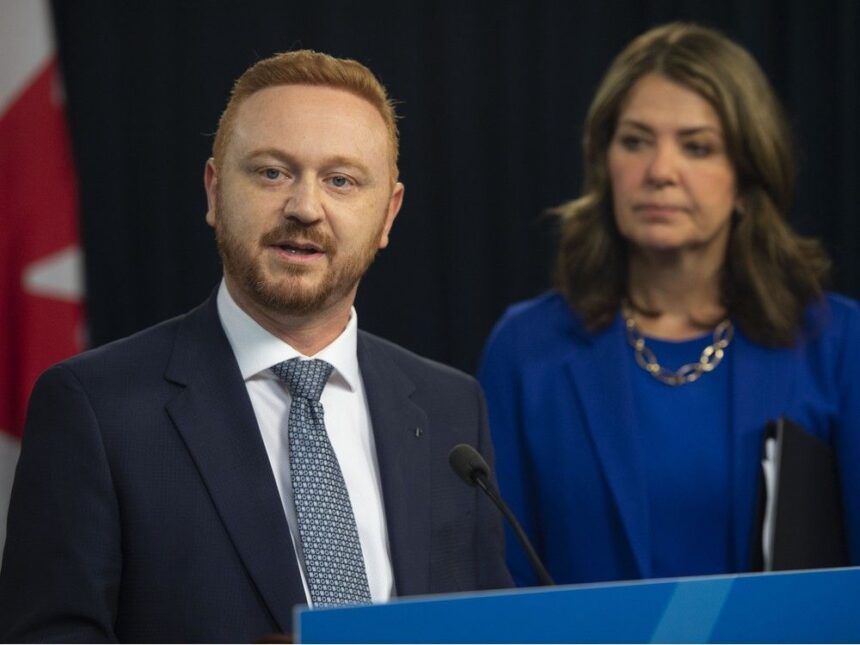Alberta’s political landscape is shifting beneath our feet again, and this time, the changes could reshape how campaigns are funded and how we vote here in Calgary. The provincial government recently introduced sweeping updates to Alberta’s election laws that have both supporters cheering and critics raising alarms.
I’ve spent the past week speaking with local political organizers who are scrambling to understand how these changes might affect upcoming municipal elections in our city. The proposed legislation aims to reintroduce corporate and union donations to municipal campaigns while simultaneously lowering the threshold for recalling elected officials.
“This is fundamentally about leveling the playing field,” Municipal Affairs Minister Ric McIver told me during a brief interview at the legislature. The UCP government argues these changes will enhance democratic participation and accountability, but the reality might be more complicated for Calgary voters.
The most significant change for our local elections would allow corporations and unions to donate up to $5,000 to candidates during municipal campaigns. This reverses reforms established in 2018 that had banned such contributions. For context, in the 2021 Calgary municipal election, candidates operated under donation limits restricted to individual Albertans only.
Ward 9 Councillor Gian-Carlo Carra didn’t mince words when I asked about the potential impact: “This opens the door to special interests having outsized influence in municipal politics at precisely the time we’re trying to address complex challenges in our city.”
The legislation would also formalize the use of voting tabulators across the province. Calgary voters will remember these electronic counting machines from our last municipal election, where they helped deliver results more efficiently than traditional hand-counting methods. Elections Calgary officials I spoke with generally support this technology, citing faster results and fewer counting errors.
Perhaps most controversially, the bill would lower the threshold for recalling elected officials. Under the proposed changes, petitioners would need signatures from just 20% of eligible voters in a jurisdiction within 60 days – down from the current 40% requirement.
Mayor Jyoti Gondek expressed concern about this particular change during a media availability at City Hall yesterday. “When the bar for recall is set too low, you risk creating perpetual campaign cycles rather than allowing elected officials to govern effectively,” she said.
Calgary political analyst Duane Bratt from Mount Royal University pointed out the timing is significant. “These changes are coming at a moment when municipal governments across Alberta, including Calgary, have been increasingly at odds with provincial policies,” he told me. “Some might view this as the province reasserting control over municipal politics.”
For everyday Calgarians, the practical effects might not be immediately obvious, but they could be far-reaching. Business leaders I spoke with, including Calgary Chamber of Commerce representatives, generally favor the return of corporate donations, arguing it allows local businesses to support candidates aligned with economic growth priorities.
Meanwhile, labor leaders and democracy advocates worry about the potential for well-funded special interests to gain disproportionate influence. Franco Savoia, former executive director of Vibrant Communities Calgary, shared concerns about equity: “When money plays a bigger role in campaigns, candidates from diverse backgrounds without access to wealthy networks face even steeper challenges.”
The bill would also standardize identification requirements at polling stations across Alberta, a move the province says will reduce voter fraud – though Elections Alberta reports actual instances of such fraud are exceedingly rare in our province.
As a journalist who’s covered multiple Calgary elections, I can’t help but reflect on how these changes might influence our local democracy. The pendulum swing on corporate and union donations is particularly notable. When the previous NDP government banned them, the stated goal was preventing undue influence from moneyed interests. The current government views those same donations as a legitimate form of democratic expression.
For voters trying to make sense of these changes, the key questions revolve around balance and representation. Will these new rules make our municipal elections more responsive to ordinary citizens, or will they amplify the voices of those with deeper p







